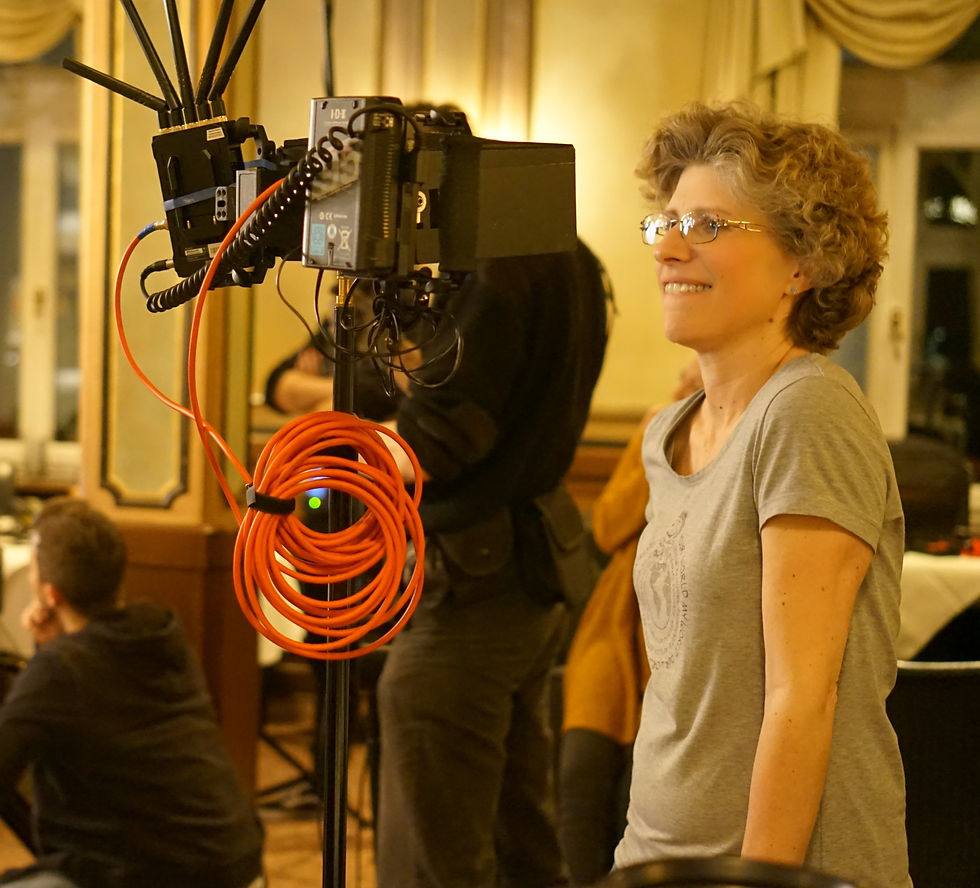The Making of Blue Widow, Part 2: Process and Privileges
- Vera Mark

- Aug 5, 2019
- 3 min read
So I had the shoot all set up. Or as set up as seemed reasonably possible, with people being incredibly helpful and things just falling into place to an amazing degree (see previous post). What could possibly go wrong?
They’ll find out I’m a fraud
Everything, I thought. Monday morning came along, the first day of shooting, and I was sure it was going to be a disaster. It would turn out that I had not arranged things properly, that there had been misunderstandings, that on set I would have no clue what to do, in short: they would all find out I am a fraud.
That’s why I had asked my assistant director to ride with me, to stop me from giving up before it even started. Which is exactly what happened – in the car, I began to whine about how it would all go wrong, how I was going to turn round and go home – and Leanne said, “The hell you are!!” The first of many instances when I realised just how valuable an AD and good friend is.
On set, I watched the crew go about their various jobs and was much impressed (not to say intimidated) by all the technology and cables and lights and people knowing their stuff. And that feeling crept back in: now they WILL find out I am a fraud...
Trust the process
Everything was set up, the actors were in place, everyone waited for me to give the go-ahead. I whispered to my DP “Leo, what do I do now?!”
He just grinned and pointed at the box in front of me: “Look at the monitor.” I did – and found that I knew exactly what to do! That moment I saw my actors through the camera’s eye, so to speak, was magical. It opened up the world of filmmaking for me.

From then on I just trusted the process – everyone did their bit, camera, focus, light, sound, make-up touch-ups, props set back in position for the next take – and I could focus on something I knew how to do: instruct my actors. And they in turn knew their business. The process worked – and it was FUN (plus hard work and long hours).
A writer-director’s privileges
It is a sad truth that in the film business, writers are notoriously under-appreciated. Things may be changing; prominent actors have recently voiced their thanks to those without whom there would be no story and no film. But we still have a long way to go.
One solution, of course, is for the writer to assume a more active role. Become a writer-producer or writer-director. Easier said than done on big projects, but I found that for a short, this is entirely doable. (Just be prepared to put the rest of your life on hold for a few months.)
You retain creative control over your baby; you learn a lot from other professionals that will improve your writing (there’ll be another post about that); and if the script must be changed on set for whatever reason, you have someone changing it who knows the inner workings of the story better than anybody else.
Plus there are no repercussions when the director insults the writer and claims credits for improvements: “The story’s a bit thin – but we’re visualising the shit out of this script.”

In my next post, I’ll share some of the practical experiences of shooting. Be prepared for some dark tales of very early, freezing cold mornings!


It sounds like a good bit of fun! so what is a DP???